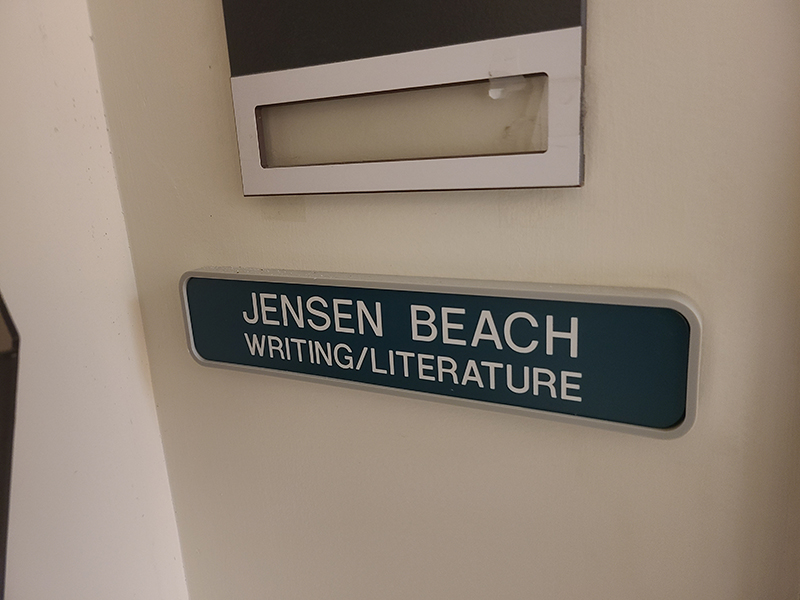Warzone Medicine, a course which has been taught for four semesters, emerged from challenges that one Johnson State faculty member was working with in Afghanistan.
While overseas, part-time instructor of Environmental and Health Sciences Sawyer Alberi began looking at allopathic medicines. According to Alberi, treatments would be more effective if we could integrate more complimentary medicines for the people we are trying to give medicine to, and with the hope that they will be able to maintain these treatments after the clinic is gone.
“One of the methodologies is to go in, for goodwill sake, and set up a clinic,” she says. “We’ll do care for people in these areas [warzones]. Politically it’s really effective, but the problem is, what are we really healing? People have this image of westernized medicine that’s very dreamlike, I think. They think that we can cure cancer and come to us in end-stage renal failure and things of that nature.”
Warzone Medicine explores medical treatment for victims of war zones, as well as humanitarian work, and what someone would have to go through in order to be able to do that type of work. The course has cross-over potential, and could also be applied to freelance journalists who enter warzones in order to report, and who often don’t have the medical knowledge to save themselves if caught in a conflict.
With journalists, Alberi spends a lot of time instructing on what to do if there were in an explosion and they had to perform immediate life-saving techniques, or if they got sick while traveling.
“I talk to these people all the time,” she says. “And they say things like, ‘well, if I’m in a cave and have a hole in my head, how can I survive that?’ and I’m like, ‘you’re going to die.’ I ask them why they do it, and you can see the passion in their eyes. You can see that they do it because they love it, and that’s really important. They deserve the right to be able to not die while doing it.”
After two journalists, Tim Hetherington and Chris Hondros, lost their lives in Libya a few years ago, Alberi was asked to develop a course that teaches people what to do if injured, because she saysHetherington’s injuries may have been survivable if he had only known.
Alberi does a lot of international travel with the military as well as contracting for other companies, teaching and applying her knowledge of combat medicine. “I’d love to get a course in South America,” says Alberi. “It’s the only continent I haven’t taught on yet.”
Alberi says that when teaching reporters in the field, she only has four days, but at Johnson State there is an entire semester dedicated to teaching the impacts of medicine in combat areas and the sustainability of life-saving treatments. Alberi says her goal is giving students the tools to do that well, and to be able to do humanitarian work.
“It’s hard to do Good isn’t it?” Alberi asks. “I mean, people think they do good things by sending stuff to soldiers, or the tsunami in Japan, or getting money together, but how do you really do that well? Because warzones and conflict areas get a lot of press, people want to help, and how do they do that well? This is one of the things that I’m trying to help students to understand, is not only how to think about the medicine in terms of these warzones, but also how to help well, and get over some of the barriers.”
In the process of the course, by calling countries in a state of conflict students learn a lot about where they’d go and what they might do to help out when they got there. After the first semester the course was offered, one student got involved in the country he wanted to be in, and really moved forward with identifying places where he could be of assistance.



